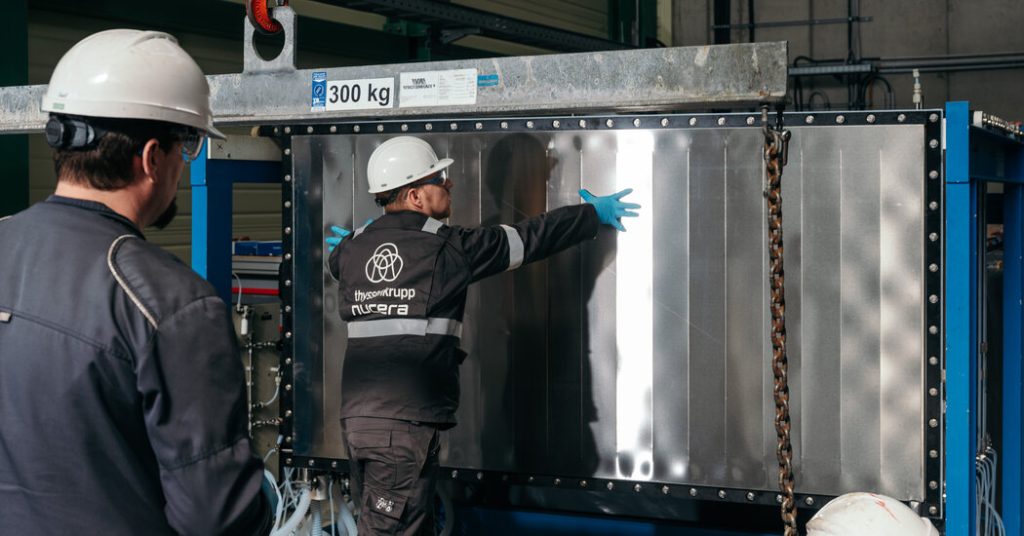In Duisburg, Germany, a steel complex is working on developing an electrolyzer that can split water into hydrogen and oxygen using electricity, creating a carbon-free gas that can potentially power heavy industries like steel-making. The Nucera project, backed by a €700 million grant from the German government, aims to revolutionize the use of hydrogen as a renewable energy source to replace fossil fuels in heavy industry. Investments in hydrogen technology have increased over the past decade, with companies like Shell and the government of Saudi Arabia ordering larger versions of electrolyzers to move toward a carbon-free industrial era.
Washington has also earmarked more funding for green technology, with the Department of Energy awarding Nucera a $50 million grant to further develop gigawatt-scale electrolyzers for North America. These subsidies reflect the understanding that without government support, the technology will not reach its full potential. Green hydrogen produced with renewable energy has the potential to significantly reduce carbon dioxide emissions from heavy industries like steel-making and long-haul transportation, contributing to global efforts to decarbonize.
Germany is focused on reducing its carbon emissions drastically by 2045, with plans to shift to low-carbon fuels like electricity and find ways to slash emissions from industries like steel, fertilizer, and cement. ThyssenKrupp, a German steel giant, plans to use hydrogen to help reduce the 20 million tons of carbon dioxide emitted annually by its steel mill in Duisburg. The shift to hydrogen through Nucera, in which ThyssenKrupp owns just over 50 percent, shows potential economic growth for German industries in the renewable energy business.
The economic downturn in renewables has impacted hydrogen-focused companies like Nucera, with shares declining due to higher interest rates and inflation affecting the economics of renewable energy projects. Despite this, Nucera saw a 35 percent increase in sales in February, mainly due to delivering electrolyzers to Saudi Arabia as part of an $8.4 billion project in the Neom region. The economics of green hydrogen are determined by factors such as the cost of electrolyzers and the price of carbon-free electricity needed to run them, with green hydrogen tending to be more expensive than gray hydrogen.
Industrial players, like ThyssenKrupp, are playing a vital role in transitioning to cleaner processes using hydrogen and other alternatives. Companies with experience in industrial technology and scaling up operations, like those in Europe and especially Germany, are well-positioned to lead the way in adopting green technologies. While the cost of green hydrogen production may currently be higher compared to gray hydrogen, government support and demand for sustainable products are expected to narrow this gap, making investments in green energy solutions economically viable in the long run.















